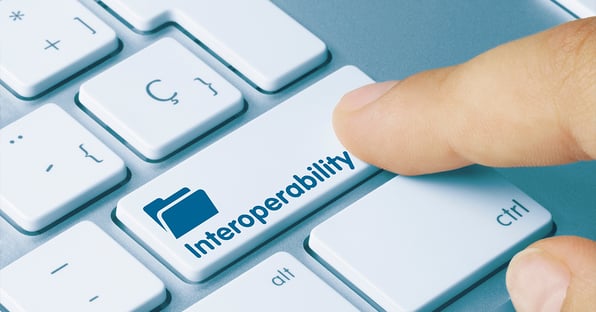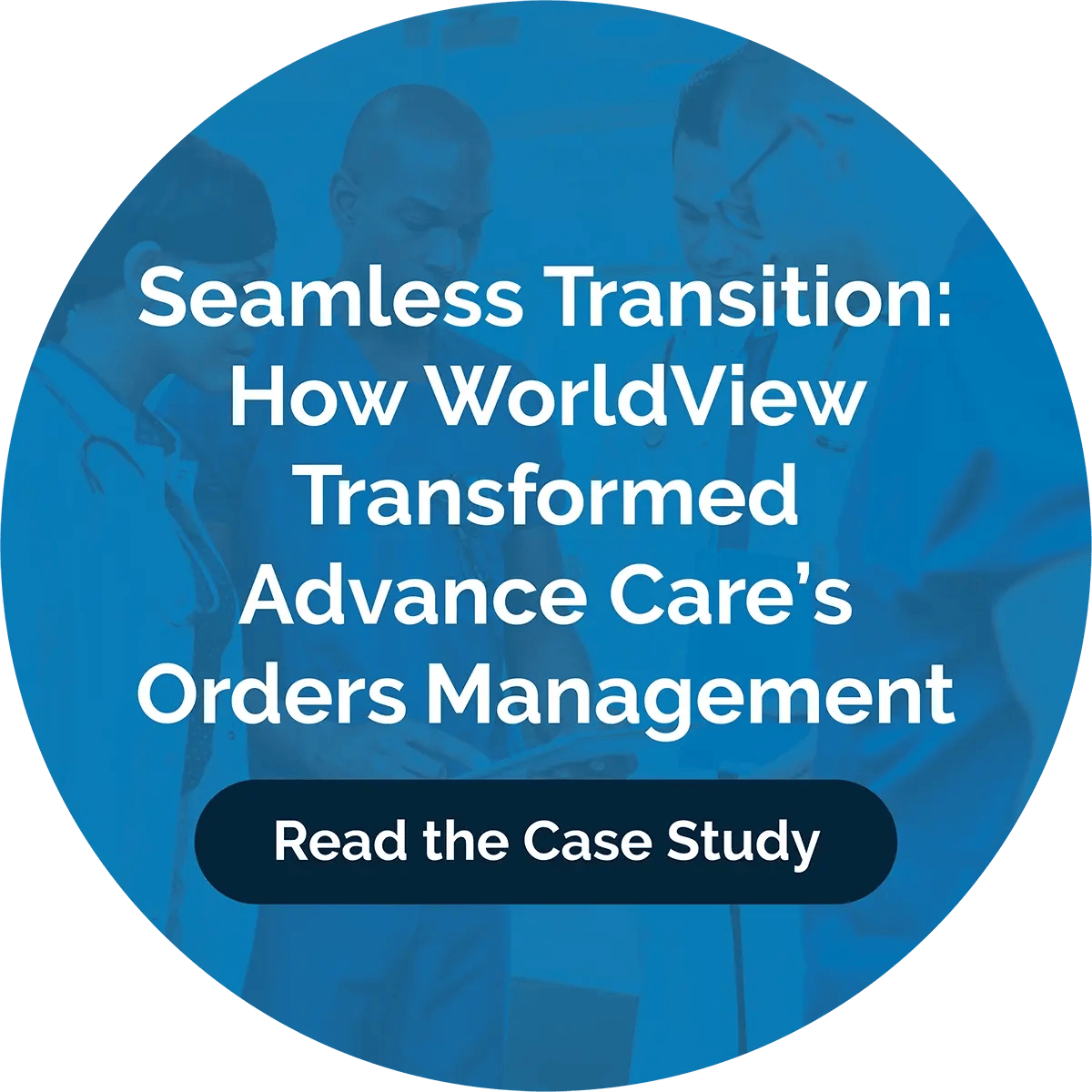How Does Interoperability Impact Healthcare Delivery?

Introduction to Interoperability in Healthcare
Advances in technology have made it much easier to coordinate patient care. Instead of digging through piles of paperwork and transmitting health records via fax, modern caregivers can instantly access electronic medical records (EMR), intake forms, physician orders, and more.
However, for this system to work well, each piece of technology needs to communicate with the others. This is known as interoperability. Without it, digital care can be just as cumbersome as analog methods. Here is how interoperability plays a crucial role in healthcare delivery environments.
The Importance of Interoperability for Patient Care
Quality healthcare depends on sharing accurate and timely information. In home health and hospice care, you need to process physician orders and referrals quickly to start care as soon as possible.
If your document management system doesn’t work with a referring physician’s system, each of you has to take multiple steps to transmit information. Interoperability allows you to track referrals and speed up patient admissions without compromising sensitive health data.
Challenges to Achieving Interoperability in Healthcare
Achieving interoperability is difficult because data is often inconsistent depending on how you enter it. Healthcare also involves processing high volumes of data on various systems. Many of these systems are incompatible.
The Role of Standards and Regulations in Promoting Interoperability
The Centers for Medicare and Medicaid Services (CMS) and other governing bodies have offered incentives to encourage caregiving agencies to use electronic medical records (EMR). In 2018, CMS updated its incentive programs to boost interoperability because it improves care.
Additionally, the Office of Management and Budget (OMB) has developed health data standards. With these standards in place, caregivers across medical practices can access the same health data. As a home health or hospice provider, you receive consistent health records from each referring provider, allowing you to develop the correct care plan for each patient.
Technological Solutions for Enhancing Interoperability
Technology, including application programming interfaces (API), makes it easier for healthcare agencies to exchange data across platforms securely. These platforms help different software programs communicate, allowing each provider to access data securely.
Cloud-based document management solutions and electronic medical records (EMR) make storing and accessing health records easier for faster information exchange.
The Impact of Interoperability on Healthcare Outcome
EMR interoperability positively impacts health outcomes. A recent study showed that improving interoperability resulted in better data accuracy. Because providers were working with better data, researchers saw a decrease in adverse patient events and medication errors.
Using interoperable systems also lets you start patient care faster. In hospice care, time is often of the essence. You and your administrative team can access referrals faster and note missing data to get your patients admitted sooner.
Conclusion: Moving Forward with Interoperability in Healthcare
WorldView offers multiple solutions for home health and hospice agencies that help improve interoperability. Our solutions integrate with your EMR, so you can store documents in one location and transmit them securely. Physician order tracking helps you get signatures and collect payments faster.
Schedule a demo to learn more about how we can help your agency.
Blog Post Tags
HealthcareGet Awesome Content Delivered Straight to Your Inbox!
Posts by topic
- Healthcare
- Business
- AI
- Hospice
- AP Workflows
- Home Care Management
- hospice-care
- General
- Industry Insights
- agency
- Blog
- Commercial
- reporting
- Data Analytics
- billing
- referrals
- News
- Referral AI
- business goals
- Operations
- business development
- partners
- Integration
- Healthcare Trends
- leadership
- Medicare
- Compliance
- audit
- medicaid
- Better Charting
- Home Health Reimbursement
- Medicare Compliance
- regulations
- Application
- Automation
- CMS Updates
- finance
- CRM
- DMSi
- Events
- KanTime
- LUPA Threshold
- Press Release
- Revenue Growth
- home Health Operations
- hospice workflow
- AP Automation for Distributors
- Announcements
- Artificial Intelligence
- EHR
- ESign
- Guides
- Homecare Homebase
- Mobile
- PDGM 2026
- Physician Order Tracking
- accounts payable burnout
- axxess
- clinical
- distribution accounting workflow
- document management
- interoperability
- invoice processing automation
- mobile documentations
- payor
- secure messaging healthcare
- workflow automation See All See Less


.png?width=596&name=19%20(3).png)
.png?width=596&name=23%20(1).png)
.png?width=596&name=1%20(18).png)